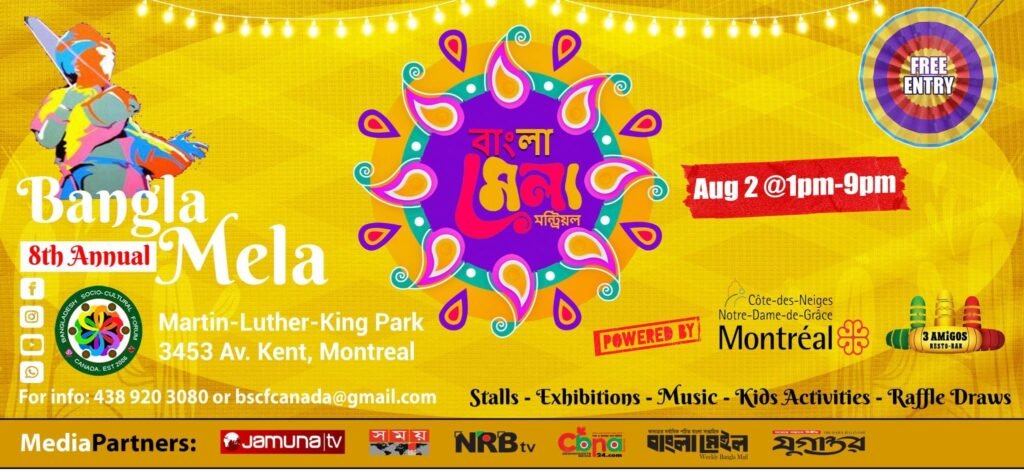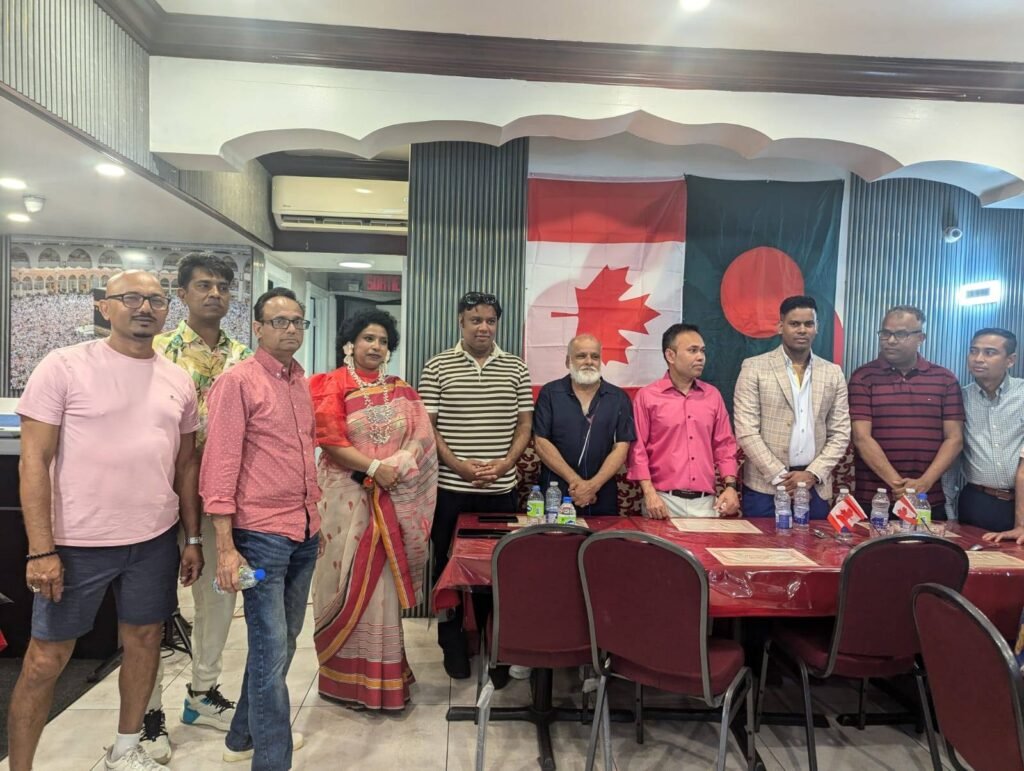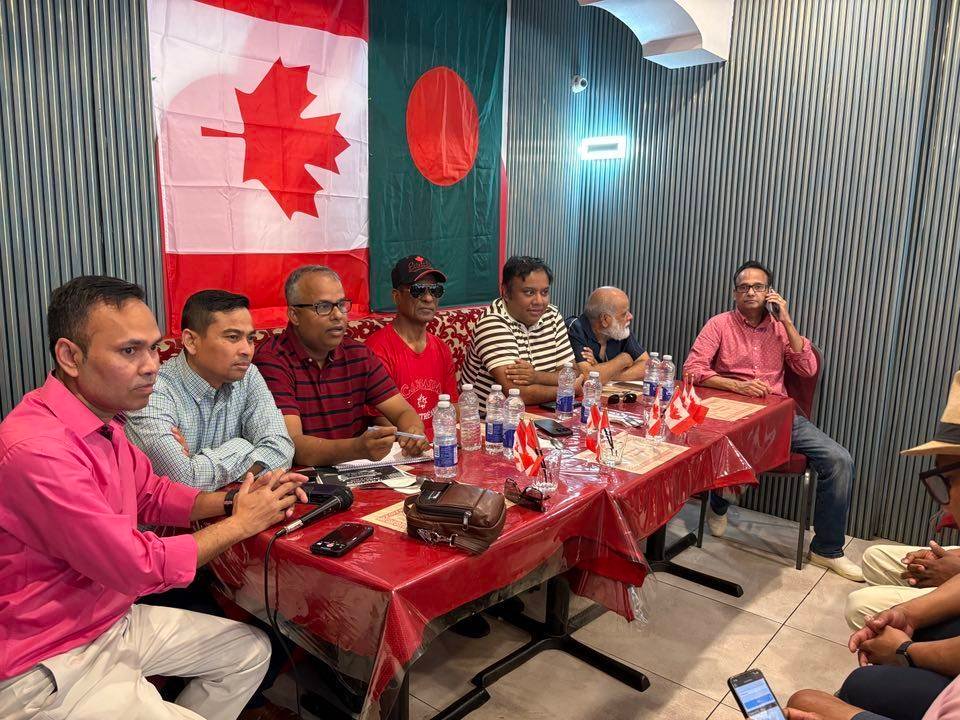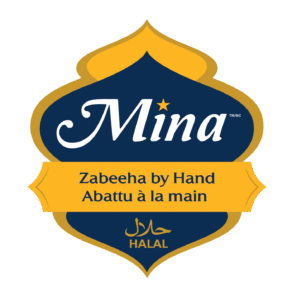

The Bangladesh Socio-Cultural Forum (BSCF) Canada was founded with a vision to unite the Bangladeshi community through the power of culture, heritage, and social responsibility. Rooted in the rich traditions of Bengal, the Forum began as a small community initiative in the 2000s, formed by a group of passionate individuals dedicated to preserving and promoting the cultural identity of Bangladesh, particularly among younger generations and the diaspora. As global migration increased, many Bangladeshis settled abroad—especially in North America, Europe, and the Middle East. With this dispersion came the need for a structured platform where community members could stay connected with their roots. In response to this growing demand, BSCF was formally established in 2006 in Montreal, Quebec, Canada. What started as a few cultural programs and community gatherings soon grew into a vibrant organization that hosts major annual festivals (like International Mother Language Day, Pohela Boishakh, Victory Day), educational seminars, youth talent shows, language workshops, and collaborative events with multicultural groups. Today, the Bangladesh Socio-Cultural Forum continues to grow, inspiring unity, cultural pride, and social development. It remains committed to being a bridge between generations—empowering youth, honoring elders, and celebrating the dynamic legacy of Bangladesh across borders.
Mission Statement:
To promote, preserve, and celebrate the rich cultural heritage, social values, and traditions of Bangladesh, while fostering unity, education, and cross-cultural understanding among the Bangladeshi diaspora and global communities.
Core Objectives:
1. Cultural Promotion:
Organize cultural festivals, music, dance, and literary events that showcase Bangladeshi arts, history, and traditions.
2. Community Engagement:
Create a platform for social dialogue, inclusion, and community support within the Bangladeshi and broader multicultural societies.
3. Youth Involvement:
Encourage youth participation in cultural activities and leadership through workshops, mentorship, and volunteerism.
4. Educational Programs:
Host seminars, lectures, and exhibitions on Bangladeshi history, language
(Bangla), and social development topics.
5. International Collaboration:
Build partnerships with other socio-cultural groups and institutions globally to share Bangladeshi culture and learn from others.





